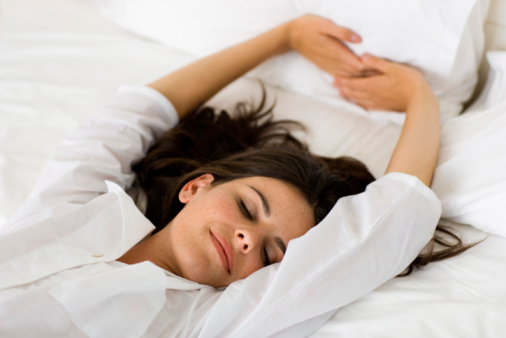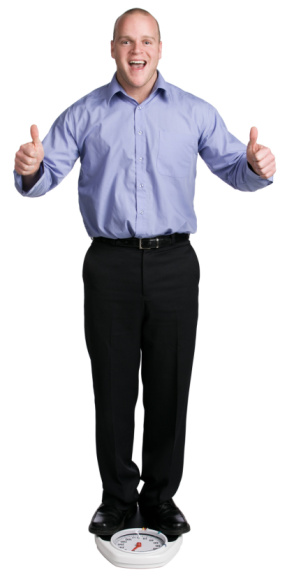Stay Informed
Popular Articles
- Hiatal Hernia: Hidden Cause of Chronic Illness
- Small Intestinal Bacterial Overgrowth (SIBO)
- Applied Lymphology: Unlocking the Secret to Pain Relief
- An Introduction to Constitutional Iridology
- The Low Down on Liver Detoxification
- An Energetic and Emotional Approach to Cancer
- Fat Facts
- Marrow in the Bones
- Blood Type and Nutrition
- Cardiac Herbs: Beyond Hawthorn
Quick Search
The School of Modern Herbal Medicine




Eating for Health and Longevity
- 6/20/2009
- Categorized in: Nutrition
This is part three of a three-part article.
So, here are the basics of how to eat to lose weight (and be healthy), based on my own experience as well as my reading and research.
First, start adding nutritionally dense, whole foods to your diet. Eat them first. Gradually, you'll find you prefer them to refined foods.
Second, always eat something for breakfast. Make sure breakfast includes some protein and quality fats. For example, eggs, avocados, whole milk yogurt (preferably organic), whole grain cereal with organic butter, flax seed oil or cream (but no sugar) would be good choices, but it all depends on what you like and what feels good to you.
Third, regular meals throughout the day. Take “fast” food with you such as fresh fruits, dried fruits, nuts, organic cheese or other healthy snacks that you can nibble on when you start to feel a little hungry. In other words, graze a little throughout the day. Stop eating when you just barely don't feel hungry anymore, not when you feel full.
Fourth, for all meals, take time to notice the flavor, texture, color and aroma of what you are eating. Pause and take time to really chew and enjoy whatever you eat. Breathe while you eat. Put down your fork or spoon between bites.
Fifth, if you're going to eat it, enjoy it! Don't ever feel guilty about what you eat. Even if it's not the best food, eat it, be thankful for it, and enjoy it.
Non-Dietary Aids to Weight Management
In addition, the following non-food related activities will be helpful.
Drink plenty of water throughout the day.
Nourish yourself by giving yourself pleasurable experiences each day (a massage, time with a friend, a relaxing bath or any other activity that gives you a sense of pleasure). Most of us overeat because we're “unhappy” and trying to fill that emotional emptiness with food.
 Get a good night's sleep. Research suggests that we need 8-9 hours of sleep per night. Most people in our society are getting 6-7 hours of sleep.
Get a good night's sleep. Research suggests that we need 8-9 hours of sleep per night. Most people in our society are getting 6-7 hours of sleep.
Become physically active. You don't have to “exercise” or go to the gym, just go for a walk, ride a bike, play a game like golf or tennis, hike, garden, whatever—as long as it's something you enjoy. (Remember here that the goal is to find pleasure in life.)
Don't “beat yourself up” emotionally over your weight (or anything else for that matter). Don't feel guilty and bad about yourself when you “break” any of the above “suggestions.” That's not the point. All of these are suggestions for how to care for your body in a way that will be pleasurable, and healthfully addictive. The goal is to get addicted to having your body feel good. Then, it's no longer a struggle to do what's good for you, it's easy and better yet automatic!
Leptin Sensitivity
My first version of this article was written several years ago. Since that time, I've learned another important key to helping you lose weight. That key has to do with a hormone called leptin. Leptin is secreted in response to eating and in response to the amount of fat stores in the body. Leptin tells the body it doesn't need food anymore, thereby reducing appetite.
Leptin not only reduces hunger, it increases fat burning and reduces fat storage. It influences the thyroid and your metabolic rate in general. Just as the body can become insulin resistant, the body can also become leptin resistant. This means that your appetite doesn't shut off properly when you eat a meal or start gaining weight. So, you continue to eat more than you need, resulting in weight gain. Eating protein, complex carbohydrates and good fats along with the suggestions above will help to improve leptin sensitivity.
The Bottom Line

So, the bottom line question is, why do people “struggle” with weight? What are they struggling with? They're not struggling with some external “enemy,” are they? They think they are struggling with their body, but that's not really true. The body is their ally. The body wants to feel good and sends us signals trying to communicate what is making it feel good and what is making it feel bad.
The problem is, we aren't listening.
So, again, when we are “struggling” to lose weight, what are we struggling with? We're struggling with our own habits, emotional issues and dysfunctional conditioning about food.
Struggling with these issues only perpetuates them. Instead, focus on finding pleasure in your life by changing your relationship with food in a positive way. Do this by selecting quality food, eating it slowly and enjoying it and by seeking out pleasurable experiences other than food that will help you feel good and be happy.
Of course, it also helps to address specific nutritional issues that may be throwing the body's biochemistry out of balance and causing the person's internal mechanisms of self-regulation to become dysfunctional. Remember, all of these things are about caring for yourself. As the title of the course I co-authored with Deanna Hansen last year suggests, “Love Your Body Beautiful.” If you need help doing this, consult some of the sources below.
Additional Resources
Eat Fat, Lose Fat by Sally Fallon and Mary Enig.
Nourishing Traditions by Sally Fallon
Ultra-Metabolism by Mark Hyman
The Pleasure Prescription by Paul Pearsall
The Truth About Beauty by Kat James
The Leptin Connection by Ron Rosedale
